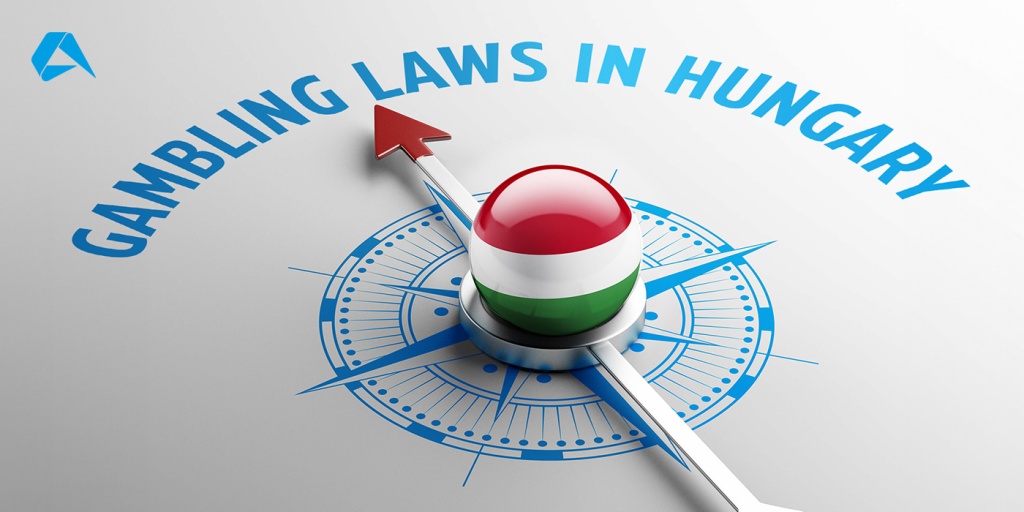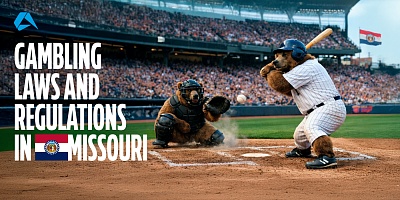Overview Gambling Laws in Hungary: Regulation and Legality
"Navigating Hungary's Gambling Laws in 2024: A Comprehensive Guide" offers an insightful look into Hungary's iGaming sector, detailing its highly regulated nature and significant barriers to entry. The article traces the history of gambling in Hungary from its first state-run lottery in 1777 to the nationalisation under communist rule in 1949, and its eventual liberalisation post-1991, with online gambling commencing in 2013.
A pivotal change occurred in January 2023, when Hungary amended its Gambling Act to end the state monopoly on online sports betting, opening it to private operators from the European Economic Area (EEA). However, online casino operations remain tightly controlled, accessible only to those with an existing land-based casino concession. Prospective sportsbook operators must meet stringent criteria, including at least five years of licensed online gaming experience within the EEA and substantial financial thresholds, such as a HUF 1 billion share capital and a HUF 600 million licensing fee. Gambling winnings are generally tax-exempt, unless accrued from unlicensed platforms, in which case they are taxed as regular income.
The industry is overseen by bodies like the Supervisory Authority for Regulatory Affairs (SARA), the Authority of Regulated Activities (SZTFH), the Hungarian Financial Intelligence Unit (HFIU), and the Data Protection Authority, ensuring compliance, preventing illicit activities, and safeguarding player data. Despite the regulatory challenges, the Hungarian online gambling market offers substantial growth potential, with projected revenues reaching £450.5 million in 2024, making it a compelling market for strategic entry. This guide serves as a crucial resource for iGaming professionals aiming to understand and enter this evolving market.
Online gambling in Hungary is highly regulated, with some of the highest barriers to entry in Europe. There is a trend towards liberalisation, and while legal entry into this emerging market is challenging, it’s not impossible.
This article shows you how and examines the current legal framework to shed light on the situation and opportunities for iGaming operators and professionals in 2024.
The History of Gambling in Hungary
Like in many European nations, gambling in Hungary has been shaped by socio-political shifts influenced by cultural attitudes over the last two decades. Gambling in Hungary dates back to 1777 when Empress Maria Theresa of Austria introduced the first state-run lottery, marking the state's early recognition of gambling as a significant revenue source. This event was followed by the opening of Hungary's first land-based gambling venue, the Nemzeti Casino in Pest (Budapest), in 1827.
The late 19th century saw a surge in horse racing, establishing it as a popular pastime with multiple racetracks around Budapest. However, private gambling would come to an end in the post-war era of 1949 when the industry was nationalised under communist rule to assert state control over most gambling activities.
The fall of communism in 1991 heralded a new era for gambling in Hungary. The government introduced the first Gambling Act to regulate the newly liberalised market, leaning towards a free-market economy albeit under state control. A year later, the Szerencsejáték Zrt was established, bringing lotteries and sports betting under state control.
Online gambling officially commenced in 2013, with the Gambling Act providing a legal framework. Strict regulations and heavy fines, however, limited market entry, leading to an influx of offshore operators. Efforts to increase market competition and reduce unlawful foreign operators were made in 2016 and 2017 following criticisms and legal challenges from the European Union. Amendments to the 2013 Gambling Act followed to reduce taxes and fees, coinciding with the launch of Hungary’s first legal online gambling website, Vegas.hu.
Here's a timeline of some of the most significant moments in the history of gambling in Hungary:
1777 Launch of the First first state-run lottery
1827 Opening of the First Casino in Pest
1949 Nationalisation of Gambling under state control
1957 Reintroduction of the National Lottery
1991 Reintroduction of the Gambling Sector
1992 Creation of State-owned monopoly Szerencsejáték Zrt
2013 Gambling Act permitting online gambling in Hungary
2016 Gambling Act revisions to penalise unlicensed sites
2023 End of Szerencsejáték Zrt monopoly on sports betting
The Current Situation for iGaming in Hungary
As of January 2023, Hungary has made efforts to reform its gambling regulations to better align with EU directives, following the 2018 EU Court of Justice ruling that found previous laws incompatible with EU standards. The new legal framework effectively ends the state monopoly over online sports betting. However, Hungary continues to preserve strict control over online casino operations.
Under the revised Gambling Act, online sports betting is now open to private operators within the European Economic Area (EEA), provided they meet specific criteria. Overall, these regulations present a sizable obstacle for foreign investors desiring market access.
Contrary to the liberalisation of sports betting, online casino gaming remains tightly controlled. New entrants can only engage in online casino operations if they possess or obtain a land-based casino concession.
Only a few casino operators are licensed (at the time of publishing this article), and despite the opening up of sports, Hungary has yet to grant licences to foreign operators since reforming the law in 2023. This cautious approach to licensing new market entrants reflects the ongoing regulatory situation.
Requirements and Regulations for Sportsbooks in 2024
Hungary enacted significant amendments to its Gambling Act In January 2023, ushering in a new era for the online sports betting market. To launch and operate successfully, private operators interested in entering the Hungarian market must meet high financial thresholds and align with local regulatory expectations.
Here’s a breakdown of the essential criteria that private operators must meet:
1. Experience Requirement
Operators must demonstrate a minimum of five years of experience providing licensed online gaming services within the European Economic Area (EEA). This requirement ensures that only experienced and reliable operators can access the market.
2. Prohibition of Past Illegal Activities
The law explicitly prohibits any operator that has engaged in unlicensed gaming activities within the past five years from obtaining a license. This measure is intended to align with EU standards and maintain the integrity of the gambling environment.
3. Financial Thresholds and Fees
In Hungary, betting operators are required to pay an annual supervision fee of 2.5% of the GGR, with minimum and maximum limits applicable, as described in Section 1(h), Ordinance 3/2022 on gambling supervision and other administrative fees. This fee is in addition to a monthly gaming tax that equates to 15% of net gambling revenue is also applicable.
4. Supervision Fee Cap
The supervision fee is capped at HUF 10 million (approx. £23,000 or €26,000), which helps to limit the licence holder's operational costs and ensures that regulatory fees do not disproportionately burden operators.
5. Licence Applications
On applying for a gaming licence, applicants need to prove their financial robustness by maintaining a share capital of at least HUF 1 billion (approx. £2.15 million or €2.5 Million) in addition to a licensing fee of HUF 600 million (approx. £1.3 million or €1.5 Million).
Early Cashouts
Revisions also included other more technical changes allowing operators to allow bettors to cash out early if the game accommodates such a feature. Early cashout is to be subject to the same rules and restrictions governing the payment of winnings.
When in use, iGaming operators are required to expressly draw the player’s attention to the fact that the use of this function entails an increased risk of excessive gambling and addiction.
Gambling Tax Regulation in Hungary
Gambling tax regulation is rigorously applied in Hungary. The tax rate for online sports betting and horse racing is set at 15%, as directed in section 32(5), Act XXXIV of 1991 on Gambling Operations.
Regular gambling winnings are exempt from tax, except where winnings were accrued from unlicensed sportsbooks or online casinos. Player winnings from these venues are considered regular income and are taxable accordingly.
Regulatory Bodies and Responsibilities
There are a number of departments that oversee and regulate gambling in Hungary. Each plays a distinct role in ensuring the industry remains fair, competitive and free from corruption.
The Supervisory Authority for Regulatory Affairs (SARA)
In Hungary, the Supervisory Authority for Regulatory Affairs (SARA) is responsible for overseeing gambling operations. As the primary regulatory body, SARA ensures that all gambling activities adhere to the stringent laws and regulations set forth by the Hungarian government. They are tasked with issuing licences, monitoring compliance, and enforcing legal frameworks. Furthermore, SARA conducts thorough audits and assessments to maintain transparency and fairness in the industry. Their role also includes addressing any illegal gambling activities and ensuring consumer protection.
The Authority of Regulated Activities (SZTFH)
The Authority of Regulated Activities oversees various regulated sectors in Hungary, including gambling to ensure compliance with laws and standards, the issuing of licenses, and the conducting of audits. It works in tandem with The Supervisory Authority for Regulatory Affairs (SARA), which provides overarching regulatory frameworks and guidelines. SZTFH enforces these guidelines, focusing on maintaining market integrity, protecting consumers, and preventing illegal activities, thereby nurturing a transparent and secure environment for all stakeholders connected with the gambling industry in Hungary.
The Hungarian Financial Intelligence Unit (HFIU)
The Hungarian HFIU is a division of the National Tax and Customs Administration, which is ultimately responsible for monitoring and preventing money laundering and terrorist financing. Like all similar AML units across mature gambling jurisdictions, the Hungarian Financial Intelligence unit collects, analyses, and communicates financial information related to suspicious transactions within the gambling sector. It ensures compliance with anti-money laundering (AML) regulations, collaborates with domestic and international agencies, and provides guidance to gambling operators on implementing rigorous AML measures.
The Data Protection Authority
The Data Protection Authority also plays a leading role within Hungary’s gambling sector, ensuring compliance with data privacy laws. Ultimately, it oversees the collection, processing, and storage of personal data by gambling operators, making sure they adhere to GDPR and national regulations. The authority conducts audits, handles data breach incidents, and enforces penalties for non-compliance. Its aim is to safeguard players' personal information and enhance trust by promoting a secure and legally compliant environment for both operators and consumers.
Opportunities and Future Outlook
Despite regulatory challenges and significant financial commitments, the Hungarian market for online gambling holds substantial growth potential for iGaming professionals.
The liberalisation of sports betting offers a new avenue for market entry, yet the stringent requirements and high costs associated with licensing may pose significant barriers. Furthermore, the continued restriction on online casino licensing to land-based operators indicates a market still closely guarded by national interests.
With that said, the Hungarian online gambling market has the potential for substantial growth and evolution, offering a fertile ground for iGaming operators to enter, innovate and expand.
Hungary's increasingly tech-savvy populace, coupled with their growing preference for online platforms as a convenient and flexible way of gambling, continues to drive this sector forward. With projected revenues in the online gambling sector expected to reach £450.5m in 2024 and grow at a CAGR of 5.55% to £598.1m by 2029, the market dynamics signal robust growth potential.
The online lottery segment alone anticipates revenues of £265.2m in 2024, underscoring the vast potential for growth with considerable consumer engagement. For iGaming operators, strategic entry into this market, aligned with local regulations and consumer preferences, can yield substantial returns, cementing an operator's foothold in Hungary’s liberalised and dynamically expanding industry.
How to Apply for a Gambling Licence in Hungary
To offer online sports betting services in Hungary, an iGaming operator must navigate a series of regulatory and procedural steps under Hungarian gambling laws. Here is a streamlined overview of these essential steps:
1. Verification of Experience: Operators must demonstrate at least five years of experience managing licensed online gaming services within the European Economic Area (EEA).
2. Licence Application: Submit a detailed application to the Hungarian Gambling Supervisory Authority. It must include all documentation proving compliance, such as business plans, software audits, and proof of financial stability.
3. Payment of Fees: Upon submission, applicants must pay an administrative service fee of HUF 10 million (~EUR 25,000). SARA will decide on the application within 120 days. Companies may be authorised for up to 7 years and can operate one gambling website.
4. Financial Requirements: Operators must show adequate capitalisation to cover potential winnings and operational costs. This includes a minimum share capital of HUF 1 billion and additional financial securities as determined by the regulatory body.
5. Prove Tax Compliance: This involves preparing for a 15% tax on annual turnover up to 10 billion HUF for online sports betting (30% for casinos) and an additional tax rate for higher revenues. Operators must also account for a supervision fee and gaming tax, contributing to regular financial reporting.
6. Technical and Security Assessments: Operators must undertake technical audits and security checks to ensure that the gaming platform meets national standards for data protection, player security, and game fairness.
7. Legal Operational Obligations: Once licensed, the operator must set up operational procedures per Hungarian legal standards. This includes establishing a local office (if required), integrating with national self-exclusion systems, and ensuring all advertising meets local regulatory standards.
8. Ongoing Compliance: Operators must maintain compliance with all regulatory requirements, including regular audits, financial reporting, and adhering to responsible gambling practices.
Altenar’s experience in providing sportsbook solutions to LVC Diamond, a company that operates two online casinos in Hungary, positions us perfectly to help iGaming professionals with their ambitions in the Hungarian market.
Disclaimer
This information is not intended to be legal advice and is solely extracted from open sources. It should not be relied upon as a substitute for professional legal advice and Altenar does not accept any liability in relation to its use.













